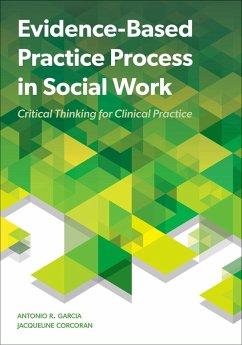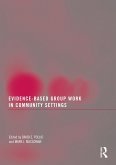Graduate students in social work are dedicated to gaining the skills and knowledge to promote individual, family, and community well-being. Yet, students often struggle with translating research concepts into best practice. They must garner the skills to consider 1) client needs and preferences, 2) the best available evidence, and 3) the implementation context. Evidence-Based Practice Process in Social Work: Critical Thinking for Clinical Practice offers a framework for aligning these three essential ingredients of the evidence-based practice (EBP) process. The book is divided into three major sections, with Section 1 consisting of the first three chapters that include a brief overview of the EBP process (Chapter 1), methods on how to conduct assessments and to rely on assessment data to formulate practice driven questions (Chapter 2) and locate culturally relevant studies to address them (Chapter 3). Section 2 covers Chapters 4-6, focusing on the other types of research designs that may help inform what interventions to implement. Section 3 focuses on what factors may impact implementation of the intervention plan, and under what circumstances it may need to be adapted. Chapter 10 focuses on the different methods to monitor client progress. Finally, a review of key concepts and additional complex case studies to reflect upon are included in Chapter 11. Acknowledging the complexity of context in the EBP process, each chapter operationalizes the EBP process with instructions, case studies, and exercises to enhance student understanding.
Dieser Download kann aus rechtlichen Gründen nur mit Rechnungsadresse in A, B, BG, CY, CZ, D, DK, EW, E, FIN, F, GR, HR, H, IRL, I, LT, L, LR, M, NL, PL, P, R, S, SLO, SK ausgeliefert werden.









